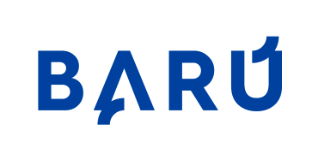
Education Process and Career Fields
Education Process
The undergraduate program in International Trade and Logistics consists of 8 semesters, covering a 4-year period. The academic year consists of two terms of 14 weeks each, including examination periods. Teaching methods are organized to equip students with the ability to solve problems they will encounter in their professional lives. Upon successful completion of the compulsory courses specified in the course plan, along with a minimum number of elective courses, earning at least 240 ECTS credits, and maintaining a GPA of 2.00/4, students are eligible to graduate from the department. Additionally, students may benefit from the double major program, where they can continue their education simultaneously in another department, or the minor program, where they can partially participate in undergraduate education in another department closely related to their major.
Career Fields
Career Fields
-
Supply Chain Management: Professionals in this area oversee the entire lifecycle of a product, from development and manufacturing to distribution and delivery. This involves managing relationships with suppliers, ensuring quality control, and optimizing operational efficiency.
-
Freight Forwarding: Freight forwarders act as intermediaries between shippers and transportation services, negotiating the best prices and ensuring that goods are transported safely and efficiently across borders.
-
Customs Brokerage: Customs brokers assist businesses in clearing goods through customs by ensuring that all legal requirements are met, duties are paid, and the necessary paperwork is complete. This role is crucial in avoiding delays and legal issues at borders.
-
Logistics Analysis: Logistics analysts help optimize logistics and supply chain processes through data analysis and strategic planning. They assess performance data to improve efficiency and reduce costs.
-
Trade Compliance: Trade compliance officers ensure that trade operations adhere to all applicable domestic and international laws and regulations. This includes staying updated on trade sanctions and export/import controls.
-
International Marketing and Sales: This role involves developing marketing strategies and managing sales operations across different countries, understanding regional market trends, cultural nuances, and economic conditions.
-
Inventory Management: Inventory managers oversee the storage and movement of inventory to ensure that stock levels are maintained efficiently without overstocking or running out.
-
Transportation Management: Professionals in this field manage the day-to-day operations of shipping and transport, including route planning, fleet management, and negotiation with carriers.
Each of these fields requires a different set of skills and knowledge, ranging from detailed understanding of regulatory environments to expertise in logistical software and strong negotiation skills. The sector offers opportunities for professional growth and the chance to work in a dynamic, globally-oriented environment.


 Türkçe
Türkçe